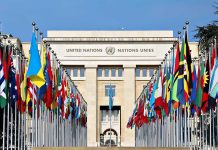
A former Politico reporter stationed in Brussels is under investigation by European security services for allegedly serving as a spy for the Chinese Communist Party, using their journalistic credentials to cultivate targets within international organizations through personal relationships and sexual overtures.
Story Snapshot
- European intelligence agencies are investigating an unnamed former Politico Brussels correspondent for suspected espionage on behalf of the CCP
- The reporter allegedly exploited journalistic access to target officials at EU and NATO headquarters, using intimate relationships as an intelligence-gathering tactic
- This case represents the latest in a troubling pattern of Chinese espionage operations targeting Western institutions, following recent convictions in the U.S. and Germany
- Politico has declined to comment on the matter and claims authorities have not contacted the organization about the investigation
Brussels Journalist Exploited Media Credentials for Beijing
European security services confirmed in October 2025 that they are actively investigating a former Politico reporter who worked in Brussels for allegedly operating as a Chinese intelligence asset. The suspect reportedly leveraged their position as a credentialed journalist covering European Union and NATO affairs to gain access to sensitive information and cultivate relationships with officials at international organizations. Intelligence sources revealed to Euractiv that the reporter’s espionage activities included making sexual advances toward targets as part of a broader operation to compromise individuals with access to classified or sensitive policy information. This represents a brazen exploitation of press freedoms to undermine Western security interests.
CCP’s Escalating Intelligence Operations Against the West
This investigation unfolds against a backdrop of intensifying Chinese espionage activities targeting Europe and the United States. In August 2025, U.S. Navy sailor Jinchao Wei was convicted of selling military secrets to China, demonstrating Beijing’s aggressive penetration of American defense establishments. The following month, a German court sentenced Jian Guo, a political aide, for passing sensitive information to Chinese intelligence services. European authorities also arrested a Belgian police officer on suspicion of spying for both China and Russia. The pattern reveals a sophisticated, multi-pronged intelligence campaign by the CCP that exploits every available avenue—from military personnel to political aides to journalists—to gather intelligence on Western political, economic, and security matters.
Why Brussels Serves as Prime Espionage Target
Brussels occupies a unique position as the de facto capital of the European Union and home to NATO headquarters, making it an intelligence goldmine for adversarial nations. The concentration of international organizations, diplomatic missions, and policy-making bodies creates an environment rich with sensitive information about Western defense strategies, economic policies, and political decision-making. Intelligence experts note that the CCP has increasingly employed “non-traditional collectors”—journalists, academics, and businesspeople—who can move freely in these circles without the scrutiny faced by known intelligence operatives. This reporter’s position at Politico provided ideal cover, offering legitimate reasons to meet with officials, attend closed briefings, and develop trusted relationships that could be exploited for intelligence purposes.
Threat to Press Freedom and Institutional Trust
The investigation raises serious concerns about the integrity of media organizations operating in sensitive diplomatic environments and the potential for foreign intelligence services to weaponize press credentials. Journalists working in Brussels typically enjoy privileged access to officials based on the assumption that they serve the public interest through independent reporting, not foreign governments through espionage. This breach of trust threatens to undermine the essential relationship between the press and government officials, potentially leading to restricted access that would harm legitimate journalism. Security analysts warn that while vigilance is necessary, overreaction could compromise democratic values and transparency. The challenge facing Western institutions is implementing stronger counterintelligence measures without creating an atmosphere of suspicion that stifles the free flow of information essential to democratic governance.
Media Organization’s Troubling Silence
Politico’s response to the investigation has been notably restrained, with a spokesperson declining to comment on personnel matters and claiming the organization has not been contacted by authorities. The reporter in question is no longer employed by Politico, though the circumstances and timing of their departure remain unclear. This lack of transparency is concerning for an organization that demands accountability from others. As of late October 2025, no formal charges have been filed, and the suspect’s identity has not been publicly disclosed. The ongoing investigation by multiple European intelligence agencies suggests the case involves substantial evidence warranting serious scrutiny. For conservatives who have long warned about foreign infiltration of American and European institutions, this case validates concerns about Beijing’s aggressive intelligence operations and the vulnerability of Western media organizations to exploitation by adversarial powers.
Sources:
Politico Reporter Under Investigation for Serving as CCP Spy – Washington Free Beacon

















